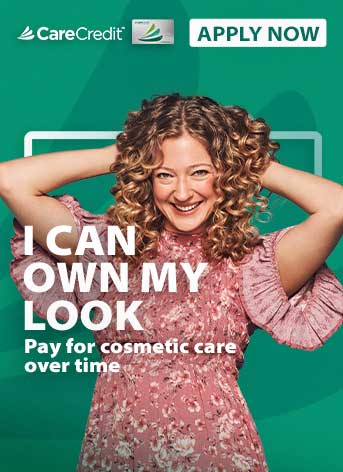Thinking about a little nip, tuck or boost? According to the most recent Plastic Surgery Statistics Report, over 25 million cosmetic procedures were performed in the United States in 2022.1 While some plastic surgery procedures may be covered by insurance if they are reconstructive or deemed medically necessary, most elective plastic surgery procedures are cosmetic and optional and are therefore not covered by insurance, leaving the financial burden solely on the patient.2
If you are considering an elective plastic surgery procedure, it is important to consider how you will cover the cost. Luckily, you have options.
What Is Elective Plastic Surgery?
Elective plastic surgery is a surgical procedure that a patient is electing or choosing to get done. It may be to cosmetically enhance or alter the body or appearance, but it is not deemed medically necessary by a medical professional.
How to Pay for Elective Plastic Surgery
When insurance doesn't cover plastic surgery procedures, you'll need to consider other payment options and the benefits and drawbacks of each. These might include paying cash up front, using a general purpose credit card, personal loan, in-house financing or using the CareCredit credit card.
Paying with cash
Paying for plastic surgery with cash might be the least expensive option overall. You won't need to pay any financing fees or interest, and you don't need to worry about applying for a new credit account. Some providers may even offer a discount if you pay for the entire procedure upfront.
However, it can take a lot of time to save up enough money. And if you don't want to delay a procedure, you may want to consider various types of financing.
General purpose credit cards
Putting an elective procedure on your general purpose card can be a convenient choice if your credit card has a high enough credit limit. However, credit cards also often have high interest rates. Paying off the balance over time could be costly, especially if you continue using the credit card for other purchases.
Opening a new credit card for the procedure might make more sense, and some general purpose credit cards have promotional interest rate offers for new cardholders. But read the terms and conditions closely to understand how the offer works.
Also, be aware that applying for a new credit card could result in a hard inquiry being added to your credit report, which might hurt your credit scores. The hard inquiry may be added even if your application is denied, and it can stay in your credit report for up to two years.3
Personal loans
Online lenders and some traditional banks offer unsecured personal loans. These loans tend to have fixed interest rates and repayment terms, and you'll know exactly how much you'll pay each month, how much interest you'll pay overall and when you will pay off the loan.
Some lenders will also preapprove you for a loan with a soft credit inquiry—a credit check that doesn't affect your credit scores. You can review your estimated loan offers and decide if you want to proceed with the application and hard credit inquiry. If you accept a loan offer, the lender will generally send the loan's proceeds directly to your bank account.
However, your creditworthiness can impact your eligibility, rates and terms. Some personal loans may have higher interest rates than credit cards, and some lenders charge an upfront origination fee that's taken out of the loan amount. For example, if you accept a $10,000 personal loan with a 10 percent origination fee, you'll receive $9,000 and have to repay $10,000, plus interest.
In-house financing
Medical providers may offer in-house financing to patients, including loans, lines of credit or payment plans. However, many providers want to avoid managing the financing and payment processing on their own, and they partner with third-party lenders instead.
If your preferred provider offers financing, consider how the rates and terms of the offer compare to what you can qualify for with other types of financing.
CareCredit credit card
The CareCredit credit card offers promotional financing that you can use for health and wellness expenses at enrolled provider locations.* Having a dedicated card for procedures can make managing and paying off the balance easier than mixing everyday and health and wellness expenses on one card.
CareCredit also has special financing for 6, 12, 18, or 24 months on qualifying purchases of $200 or more at enrolled provider locations.** Or, special financing for 24, 36, or 48 months available on qualifying purchases of $1,000 or more, or 60 months on qualifying purchases of $2,500 or more at enrolled provider locations.**
You can also see if you prequalify for the CareCredit credit card online, without impacting your credit score.
| Additional Costs | See If You Prequalify Without Impacting Your Credit Score | Access to Funds | |
|---|---|---|---|
|
Cash |
No |
N/A |
N/A |
|
General Purpose Credit Card |
May have an annual fee |
Sometimes |
May need to wait until your card arrives in the mail. |
|
Personal Loan |
May have an origination fee |
Sometimes |
May take several business days. |
|
In-House Financing |
May have an origination fee |
Sometimes |
Immediately after you're approved. |
|
CareCredit Credit Card |
No annual fee*** |
Yes |
Immediately if you're approved. |
4 Tips to Help Finance Your Plastic Surgery
While elective plastic surgery procedures can come with a hefty price tag, there are ways patients can look to save money.
1. Plan ahead
Planning ahead for your procedure allows you to save money for payments, shop around for good deals and compare financing offers.
2. Look for bundles
If you're interested in getting multiple cosmetic procedures at once or getting a procedure like EmSculpt® or spider vein removal that may require multiple treatments to achieve your desired results, look for package deals or bundles from your plastic surgeon.
3. Pay some money up front
Paying for part of the procedure with cash can decrease how much you have to borrow. You might find it's easier to get approved for a smaller loan or line of credit with favorable terms, and borrowing less money might help you save on fees and interest.
4. Pay off the balance within the promotional period
If you accept a promotional financing offer, review its terms to make sure you understand how it works. Even if you aren't required to make more than the minimum monthly payments, you may want to have a plan for paying off the account's entire balance before the end of the promotional period.
Financing Plastic Surgery With the CareCredit Credit Card
Ready to revitalize your appearance and boost your confidence? The CareCredit credit card makes it easy to pay for Mommy Makeovers and related expenses not covered by health insurance.* Use our Acceptance Locator to find a doctor or cosmetic surgeon near you that accepts CareCredit so you can stop dreaming and start living your best life. Continue your wellness journey by downloading the CareCredit Mobile App to manage your CareCredit account, find a provider on the go and easily access the Well U blog for more great articles, podcasts and videos.
In addition to cosmetic procedures, you can also use your CareCredit credit card for dentistry, pet care, vision, hearing, health systems, dermatology, pharmacy purchases, spa treatments and so much more within the CareCredit network. How will you invest in your health and wellness next?
Author Bio
Kate Bayless is a health and wellness freelance writer with 15 years of experience. Her work has appeared in Parents, Women's Health, Beachbody, and OpenFit.








